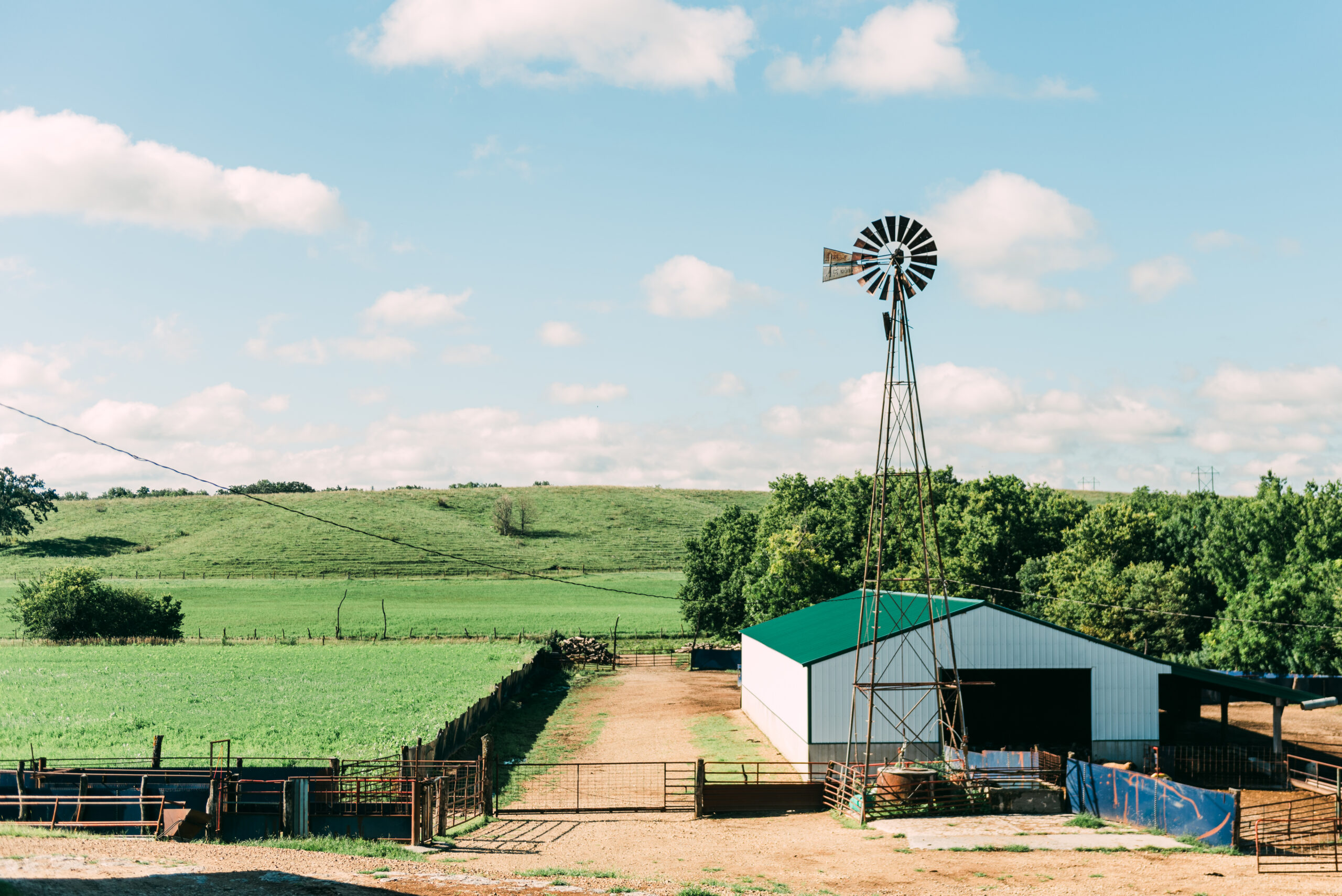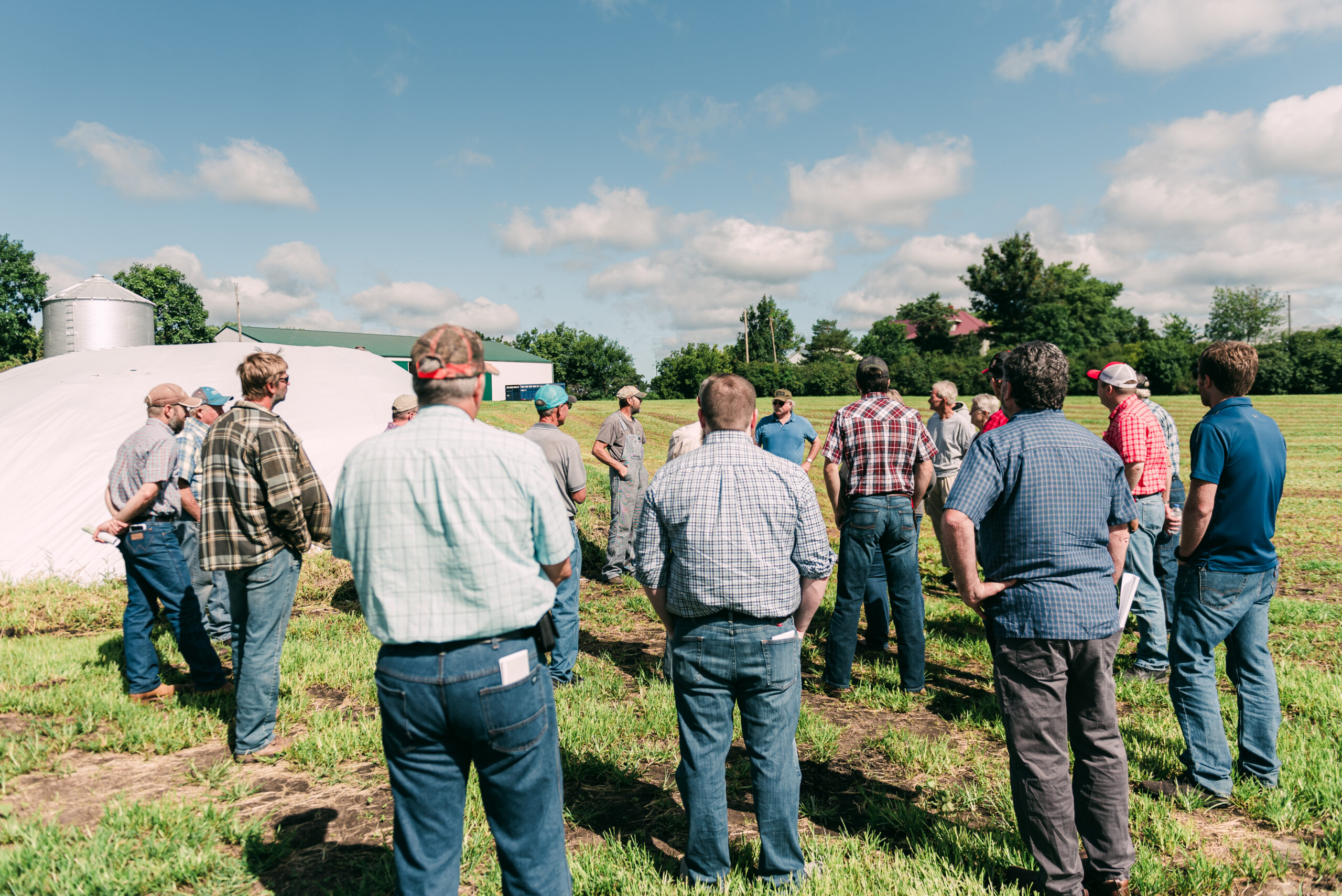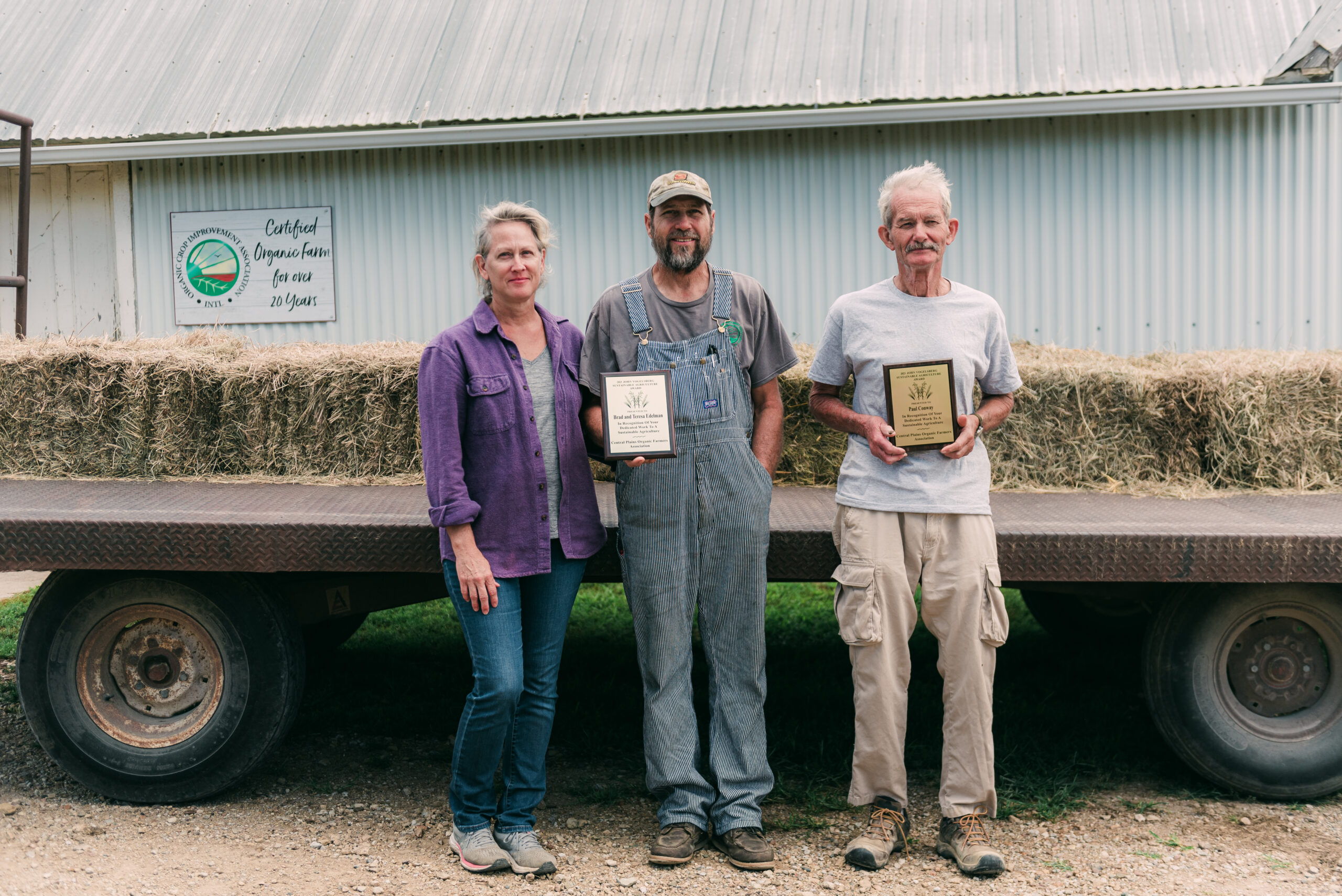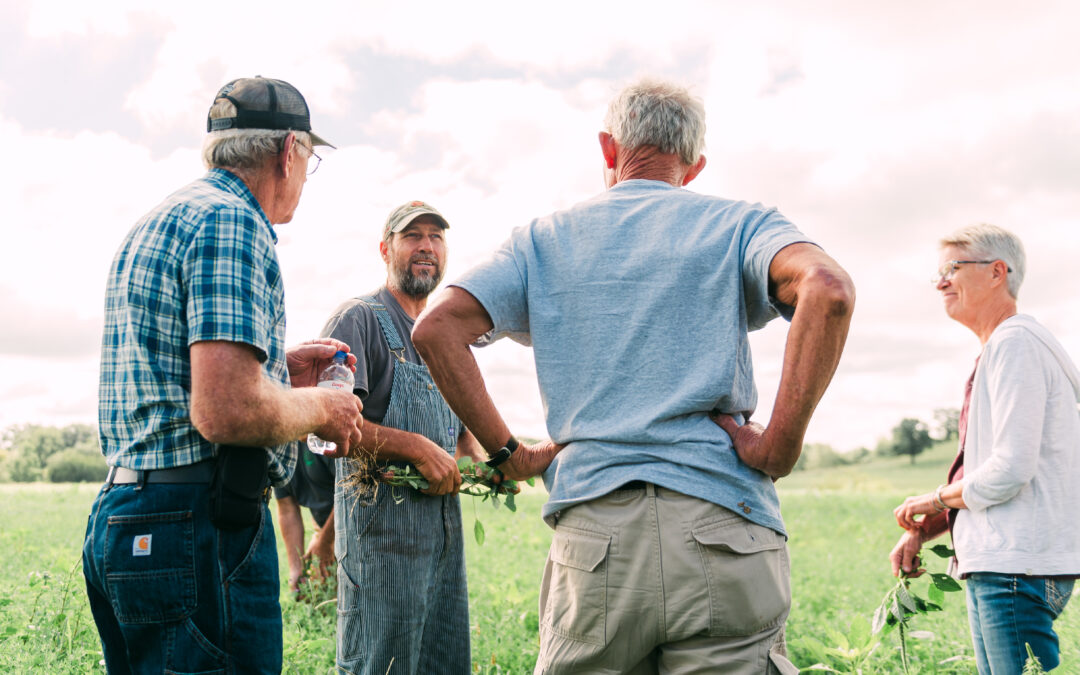A passion for sustainable farming
Sustainable farming is Brad Edelman’s passion. The Kansas farmer, who began farming full time with his father in the 1980s, hasn’t used chemicals on crops since he was a teenager.
“When Brad was around 14 years old, he sprayed corn with 2-4-D,” his wife, Teresa Edelman, said. The year’s wet conditions prevented cultivation, and using the synthetic herbicide to help the crops grow seemed like the best option at the time.
Although limited exposure to 2-4-D is typically safe for humans, some people can have adverse reactions like headaches, confusion, and vomiting. Long term exposure can lead to permanent kidney and liver damage and even cancer.
“I got very sick,” Brad recalled. “I decided I would never use chemicals like that again if I could help it.”

Brad and his father committed to farming without the use of synthetic inputs. To ensure the health of the soil and the viability of their crops, the men implemented a crop rotation cycle that included corn, beans, oats, wheat, alfalfa, clover, sweet clover, and barley.
“We continue to use crop rotation,” Brad said, noting that the only crop they no longer plant is barley. “And we have added in cover crops.”
In addition to crops, the Edelman farm also includes a beef cow herd and flock of ewes that contribute to soil fertility through green manure. The family also has an assortment of other animals. Dogs and cats help with predator control, and chickens provide meat, eggs, and insect control.
“We also have horses, maybe a goat and pig or two depending on our children’s current interests,” Teresa said.
Brad’s commitment to farming sustainably extends beyond his family’s operation. He is also committed to helping other farmers understand the benefits of organic farming and what it takes to operate a successful organic farm.
On-farm events allow the sharing of a passion
On August 14, the Edelmans hosted a farm-start event meant to encourage others in the area to adopt organic farming practices. Plains TOPP (Transition to Organic Partnership Program) sponsored the event, and nearly twenty individuals from Kansas, Nebraska, and Minnesota attended.
The event began with a farm tour. Attendees–some transitioning to organic, some already certified—observed field layouts, storage of on-farm equipment and supplies, and how the Edelman’s use cover crops to combat weeds.
“On farm events benefit everyone that comes,” Brad said.
Attendees largely agreed, leaving not only with firsthand observations of a successful organic farm, but with additional insights thanks to presentations that covered TOPP, cover cropping, and the use of natural inputs.

Although the focus of the event was individuals transitioning to organic, experienced organic farmers also benefitted from the on-farm event—including the event hosts.
“We benefited by caring individuals giving us ideas to try on existing problematic areas,” Brad reflected. Changes in weather patterns, the availability of seeds and natural inputs, and updates to organic regulations can give rise to problems for certified operators. But the organic community is strong and supportive. “We were encouraged knowing there are other like-minded farmers out there dealing with some of the same struggles that we have, but [they] still keep going!”
Attending on-farm events helps the Edelman’s continue growing in their knowledge of organic agriculture and refining their practices.
“We’ve always come home with ideas, resources and encouragement to help us keep trying to improve our practices,” Brad said.
The Edelmans are confident that the August 14 event provided the same positive impact for attendees.
Hard work rewarded
The on-farm event also included an informal award ceremony during the organic lunch. Brad and Teresa were one of two recipients of the John Vogelsberg Sustainable Agriculture Award. The other recipient was Paul Conway, who gave a presentation on cover crops at the event.
Unlike many awards which are given out annually, the John Vogelsberg Sustainable Agriculture Award is not given annually. It is only awarded to individuals who truly embody the spirit of John Vogelsberg: a deep and unfailing commitment to sustainable agricultural practices. The Edelman’s deep commitment and passion for sustainability embodies the spirit of the award.
“Our farm has been in the family for three generations,” Brad said, reflecting on his deep commitment to both the land and his family’s tradition of ecological stewardship.
Teresa added, “Farming sustainably means caring for the land and all of its organisms to keep it balanced so the land can provide for us.”
The Edelmans don’t farm sustainably just for themselves. They farm sustainably for future generations as well.
“Good stewardship is not only profitable, but also commanded by the Creator,” Brad said. “We feel blessed to have the privilege to care for this farm while we’re living on this earth and working with our children to instill the same values so when we’re gone, they can carry on to the next generation. That’s sustainability.”

Every operator’s path to organic certification is different. Learn more about about the different paths to organic certification in our “Operator Spotlight” series.
- Allan Kettle: In the mid-1990s, Allan Kettle decided to organically certify his Alberta farm. For Allan, the decision to pursue organic certification was easy. Allan’s father, who operated the farm before him, had never used synthetic fertilizers or sprays. Allan continued those practices when he took over the farm.
- Variety Coffee: Variety Coffee has a simple mission: provide customers with the freshest, highest quality coffee possible. The Brooklyn based coffee roster and chain of cafes does this by sourcing coffee beans from around the world, focusing on acquiring beans that reflect growing seasons of different coffee producing regions.
- Jack Geiger: The farm crisis of the 1980s forced Jack Geiger’s family to consider farming methods that required fewer and less expensive inputs. They naturally turned to organics.
Learn more about organic agriculture, certification, and OCIA International.
- Should you transition to Organic?: The decision to transition a conventional operation to organic is deeply personal. Organic certification requires resources, like time and money, and perseverance in the face of the challenges that you will inevitably encounter along the way. Is transitioning to organic the right step for your operation?
- Organic Certification Process: All operators seeking initial organic certification must complete a similar six step process regardless of which certification agency they partner with. The certification process can feel intimidating at first, but knowing what to expect can help alleviate much of the stress you might initially feel.
- Organic System Plan: Every operator must submit an organic system plan. But what is included? And how will the plan provided YOU with benefits beyond certification?
- Healthy Soil: Cultivating healthy soil requires establishing ecological balance and increasing biological diversity. But how can you establish healthy soil on your farm?
- Why Certify with OCIA?: Choosing an organic certification agency is one of the most important points in an operator’s certification process. Let us tell you why OCIA is the right choice for you.

